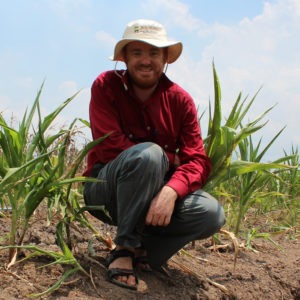

Food & Nutrition Security – The Biosecurity, Health, Trade Nexus
13-14 December 2021, Canberra

David Gale
 Manager, Data Management and Surveillance Communities, Plant Health Australia and former Crawford Fund awardee
Manager, Data Management and Surveillance Communities, Plant Health Australia and former Crawford Fund awardee
(presenter)
David Gale is currently the Manager, Data Management and Surveillance Communities at Plant Health Australia (PHA) where, amongst other things, he has recently been managing a Department of Agriculture, Water and the Environment funded project working with Australian botanic gardens to improve national plant pest surveillance outcomes. The networks of staff and Friends of botanic gardens developed through this project also connect into the International Plant Sentinel Network (IPSN) to contribute to collaborative efforts to conduct plant pest surveillance across many countries. Prior to working at PHA David completed a Master of Philosophy undertaking a project investigating the way in which certain composts act to ameliorate acid sulphate soils in Vietnam’s Mekong Delta. David was a Crawford Fund Conference Scholar in 2012 and a Crawford Fund IRRI scholarship awardee in 2013. David is an ACT RAID events representative, and the RAID representative to the ACT Crawford Committee.
Global collaboration: International Plant Sentinel Network
Rapid-Fire Case Study
Co-author: Katherine O’Donnell, Head of Seed Conservation and Plant Health, Botanic Gardens Conservation International
ABSTRACT
Invertebrate and pathogen pests present a significant risk to global plant health and this threat is ever rising due to the growing global trade of plant material and, increasingly, evidence suggests that climate change is influencing pest establishment in new locations. Sentinel plants within botanic gardens and arboreta can play a vital role in providing information on future and/or unknown threats.
The objective of the International Plant Sentinel Network (IPSN) is to act as an early warning system to recognise new and emerging pest and pathogen risks through the development of national and international partnerships between plant protection scientists and botanic gardens and arboreta.
There are currently 67 IPSN members including the: Australian National Botanic Garden, Kings Park and Botanic Garden (Perth), Royal Botanic Gardens Victoria, National Arboretum Canberra, Royal Botanic Gardens Sydney, Royal Tasmanian Botanical Garden, and Botanic Gardens and State Herbarium of South Australia.
As part of the project ‘Establishing a Program of Plant Pest Surveillance in Australian Botanic Gardens and Arboreta’, funded through the Australian Government’s Agricultural Competitiveness White Paper, the government’s plan for stronger farmers and a stronger economy, Plant Health Australia has had the opportunity to develop connections with the IPSN to build capacity and knowledge locally and abroad.